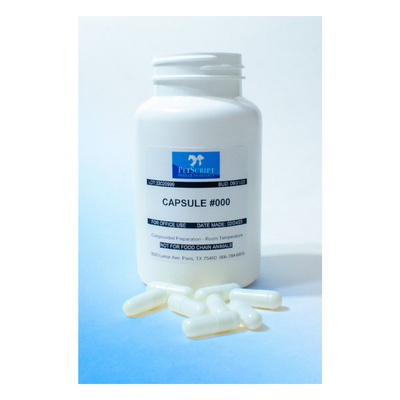Understanding the Perks and Uses of Fenbendazole in Veterinary Medication
Fenbendazole has actually established itself as an essential anthelmintic in vet medication. Its capacity to target various parasitic infections makes it an important tool for vets. The medicine's system disrupts important mobile procedures in parasites, leading to reliable treatment results. Its security profile varies between varieties, requiring mindful factor to consider in its usage (fenbendazole capsules). Understanding these characteristics can drop light on fenbendazole's more comprehensive implications in veterinary treatment and recurring research study right into its prospective past traditional applications
System of Action of Fenbendazole

Common Parasitical Infections Treated With Fenbendazole
A range of parasitical infections are effectively treated with fenbendazole, making it a functional alternative in vet medicine. This anthelmintic representative is specifically reliable against nematodes, consisting of roundworms and hookworms, which frequently affect pet dogs and felines. It is likewise utilized for the therapy of cestodes, such as tapeworms, providing a broad spectrum of action against both sorts of digestive tract parasites. In addition, fenbendazole is valuable in handling infections triggered by protozoa, especially Giardia, which can lead to intestinal distress in pets. Its efficiency includes dealing with certain lungworms in pooches and felines, dealing with breathing health and wellness problems connected to these bloodsuckers. Generally, fenbendazole's ability to target several parasitic species makes it a valuable device in vet technique, making sure the health and health of pets affected by these typical infections.
Security and Efficacy in Different Animal Variety
The safety and security and efficacy of fenbendazole vary amongst different animal varieties, highlighting the significance of species-specific considerations in veterinary medication. In pooches, fenbendazole is usually well-tolerated and reliable against an array of stomach bloodsuckers, including roundworms and hookworms. For felines, nevertheless, its usage is much less usual and might need mindful application because of potential damaging reactions.
In animals, such as livestock and lamb, fenbendazole demonstrates efficiency against various endoparasites, contributing to improved health and wellness and efficiency. The pharmacokinetics and prospective side effects can vary substantially in between varieties, demanding cautious evaluation by veterinarians.
Equines likewise react positively to fenbendazole, particularly for dealing with strongyles and ascarids, though dose and management courses need to be customized to their distinct physiology. Comprehending these differences is important for maximizing therapy end results and making certain pet well-being across varied species.
Administration and Dose Guidelines
Correct management and dose guidelines are essential for maximizing the healing results of fenbendazole while minimizing potential side results. The dosage usually varies depending on the varieties being dealt with, the particular problem, find out here and the formulation of fenbendazole you could try this out used. fenbendazole 444. For pet dogs and felines, a typical dosage is 50 mg/kg body weight, administered daily for 3 consecutive days, yet veterinarians might readjust this based upon specific health analyses
It is necessary to administer fenbendazole with food to enhance absorption and reduce intestinal distress. The drug is readily available in numerous kinds, consisting of granules and paste, permitting flexible administration choices. Checking the animal's response during and after therapy is suggested to verify effectiveness and safety and security. In addition, veterinary advice is crucial to identify the proper duration of therapy based upon the kind of parasitic infection being resolved, ensuring optimal results for the pet's wellness.
Future Point Of Views and Study on Fenbendazole
Research study on fenbendazole proceeds to progress, concentrating on its prospective applications beyond conventional antiparasitic usages. Current researches have explored its effectiveness in dealing with different kinds of cancer cells, specifically in vet oncology. Preliminary data suggest that fenbendazole might inhibit the development of lump cells and improve the results of other chemotherapeutic representatives.
Researchers are examining its function in taking care of stomach conditions in pets, highlighting its anti-inflammatory residential or commercial properties. The versatility of fenbendazole for various species questions about its security profiles and perfect dosing programs in diverse populations.
As passion expands, there is a requirement for complete professional trials to establish evidence-based standards for these unique applications. Future study may additionally examine the mechanisms behind fenbendazole's results, possibly leading the way for innovative restorative techniques in veterinary medication. The ongoing expedition of fenbendazole might greatly enhance therapy alternatives for various vet problems.

Regularly Asked Questions
Is Fenbendazole Safe for Pregnant Animals?
The safety and security of fenbendazole for expecting pets remains uncertain. While some studies recommend minimal risk, vets commonly recommend care and commonly discourage its use during pregnancy unless the benefits clearly surpass potential dangers.
Can Fenbendazole Be Made Use Of in Livestock?
Fenbendazole is frequently utilized in livestock to deal with numerous parasitic infections. fenbendazole capsules. Its efficiency against stomach worms makes it an important anthelmintic, contributing to boosted wellness and productivity in pets raised for food and fiber
What Are the Adverse Effects of Fenbendazole?

The negative effects of fenbendazole might include stomach disturbances, sleepiness, and allergies. In uncommon cases, much more severe responses can occur, necessitating mindful surveillance and examination with a vet during treatment.
Just How Does Fenbendazole Contrast to Various Other Dewormers?
Fenbendazole offers broad-spectrum effectiveness against numerous bloodsuckers, commonly comparing positively to various other dewormers. Its unique device targets various life stages, making it reliable, like it while generally providing a positive safety and security profile contrasted to options readily available on the market.
Can Fenbendazole Be Used for Treating Cancer in Pets?
The potential of fenbendazole in dealing with cancer cells in family pets has actually gathered passion. Initial researches suggest it may prevent cancer cell growth, however better research study is required to validate its efficacy and safety in vet oncology.